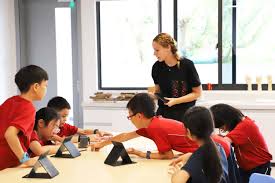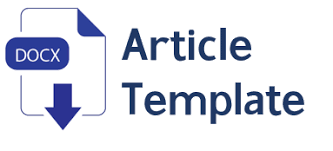Comparative Analysis of Primary Education Curriculum in Indonesia and China in the Implementation of Independent Learning
Keywords:
Curriculum Structure, Primary Education, Independent LearningAbstract
Education as the main foundation in the development of a nation requires joint efforts from various parties to achieve its goals. Independent learning is one of the essential skills in the era of globalization, encouraging students to learn independently, creatively, and critically. This study aims to compare the implementation of independent learning in the primary education curriculum in Indonesia and China. The research uses a qualitative method with a descriptive approach through a literature review of various scientific sources related to the implementation of independent learning in both countries. The results show that in Indonesia, the Merdeka Curriculum introduced in 2021 emphasizes contextual and project-based learning, giving students the freedom to develop their independence. Meanwhile, in China, independent learning focuses on mastering material individually with the support of technology, where students are required to have high self-management abilities. Although both prioritize the development of independence, the challenges faced in each country are different, particularly related to teacher readiness, infrastructure, and the applied curriculum approach. This study provides insights into the supporting and inhibiting factors in the implementation of independent learning and its implications for educational policies in both countries.
References
References
Asep, O. :, & Jaelani, J. (n.d.). literasi digital dan pembelajaran mandiri. In Prosiding Seminar Nasional Pendidikan Sultan Agung (Vol. 3). Retrieved from https://jurnal.unissula.ac.id/index.php/sendiksa/article/download/19824/6358
Chairunnisa, D., Syam, L., Tahir, A., Ramadhani, A., Sadriani, A., Sosial, F., & Hukum, D. (n.d.). evolusi kurikulum pendidikan indonesia: sejarah dan perubahan dari masa ke masa. Retrieved from https://journal-nusantara.com/index.php/PESHUM/article/download/3506/2799/7145
Chongchong, Y., & Bikar Singh, S. S. (2024). The influence of student self-management on academic achievement among students in China. International Journal of Academic Research in Business and Social Sciences, 14(10). https://doi.org/10.6007/IJARBSS/v14-i10/23451
Fariha Fariha, & Komarudin Sassi. (2023). Sistem pendidikan di negara china. Jurnal Nakula : Pusat Ilmu Pendidikan, Bahasa Dan Ilmu Sosial, 2(1), 332–347. https://doi.org/10.61132/nakula.v2i1.500
Ghozil Aulia, M., Agung Rokhimawan, M., & Nafiisah, J. (2022). Desain pengembangan kurikulum dan implementasinya untuk program pendidikan agama islam. Journal of Education and Teaching (JET), 3(2), 224–246. https://doi.org/10.51454/jet.v3i2.184
Heryanti, Y. Y., Tatang Muhtar, & Yusuf Tri Herlambang. (2023). Makna dan implementasi kurikulum merdeka belajar dan relevansinya bagi perkembangan siswa di sekolah dasar : telaah kritis dalam tinjauan pedagogis. Jurnal Elementaria Edukasia, 6(3), 1270–1280. https://doi.org/10.31949/jee.v6i3.6118
Khoirudin, K. (2022). Techniques self-regulated learning to improve self-regulated learning and students’ learning independence in online learning situations covid the -19. Mendidik: Jurnal Kajian Pendidikan dan Pengajaran, 8(1), 51–57. https://doi.org/10.30653/003.202281.210
Ledia, S., Mauli, B., & Bustam, R. (n.d.). Reslaj: Religion education social laa roiba journal implementasi kurikulum merdeka dalam meningkatkan mutu pendidikan. https://doi.org/10.47476/reslaj.v6i1.273
Masitoh, S., & Herman, T. (2024). Kemandirian belajar siswa kelas VII berdasarkan analisis pedagogik pembelajaran matematika. JPMI (Jurnal Pembelajaran Matematika Inovatif), 7(2), 365–376. https://doi.org/10.22460/jpmi.v7i2.21643
Morris, T. H., & Rohs, M. (2023). The potential for digital technology to support self-directed learning in the formal education of children: a scoping review. Interactive Learning Environments, 31(4), 1974–1987. https://doi.org/10.1080/10494820.2020.1870501
Nurfitri, R., & Noviani, D. (2023). Pengertian: Jurnal Pendidikan Indonesia (PJPI) Open access under CC BY NC SA Peran administrasi kurikulum dalam sebuah pendidikan. 1(1), 183–192. Retrieved from https://ejournal.lapad.id/index.php/PJPI/article/view/165
Putra, A., & Syelitiar, F. (n.d.). Systematic literatur review: kemandirian belajar siswa pada pembelajaran daring. Retrieved from https://jurnal.uhn.ac.id/index.php/sepren/article/view/490
Said Hamid Hasan. (2023). Kebijakan dan pengembangan kurikulum pendidikan dasar (1st ed., Vol. 7). Universitas Terbuka.
Salamah, U. (2024). Analisis konsep dan struktur kurikulum merdeka dan merdeka belajar. Retrieved from https://journal.amikveteran.ac.id/index.php/Khatulistiwa/article/view/3234
Wahab Syakhrani, A., Rakha Amuntai, S., Selatan, K., STAI Rakha Amuntai, B., Dewi STAI Rakha Amuntai, I., Mahmudah STAI Rakha Amuntai, I., & Elisa Rahmadina STAI Rakha Amuntai, I. (2022). Sistem pendidikan di negara china. Adiba: Journal of Education, 2(3), 413–420.
Zeng, W. (2022). An empirical research on China’s policy for ICT integration in basic education from 1988 to 2021. Educational Technology Research and Development, 70(3), 1059–1082. https://doi.org/10.1007/s11423-022-10079-y

Downloads
Published
How to Cite
Conference Proceedings Volume
Section
License
Copyright (c) 2024 Magdalena S. Laka, Upik Erdawati S. Sianu, Hana Norfiani, Yuliana W. Ruhupatty, Ni Luh Nita Sari

This work is licensed under a Creative Commons Attribution-ShareAlike 4.0 International License.











